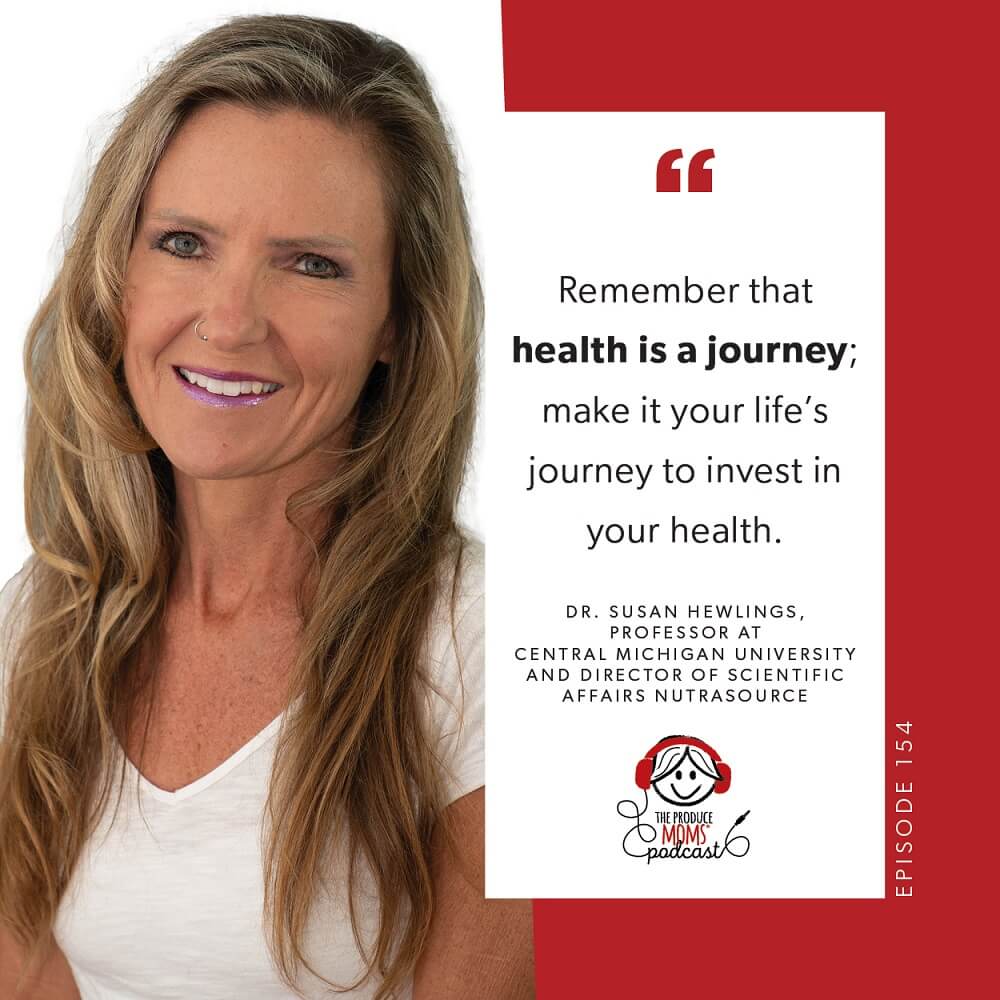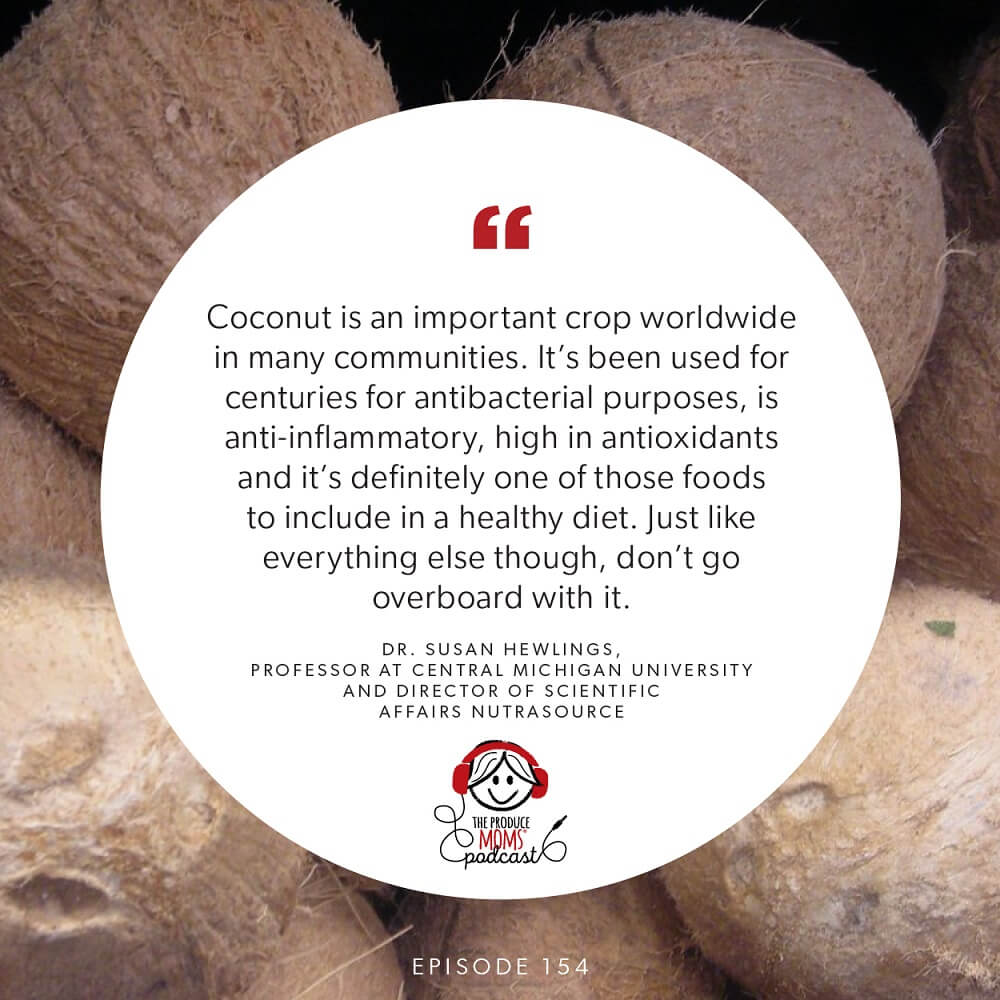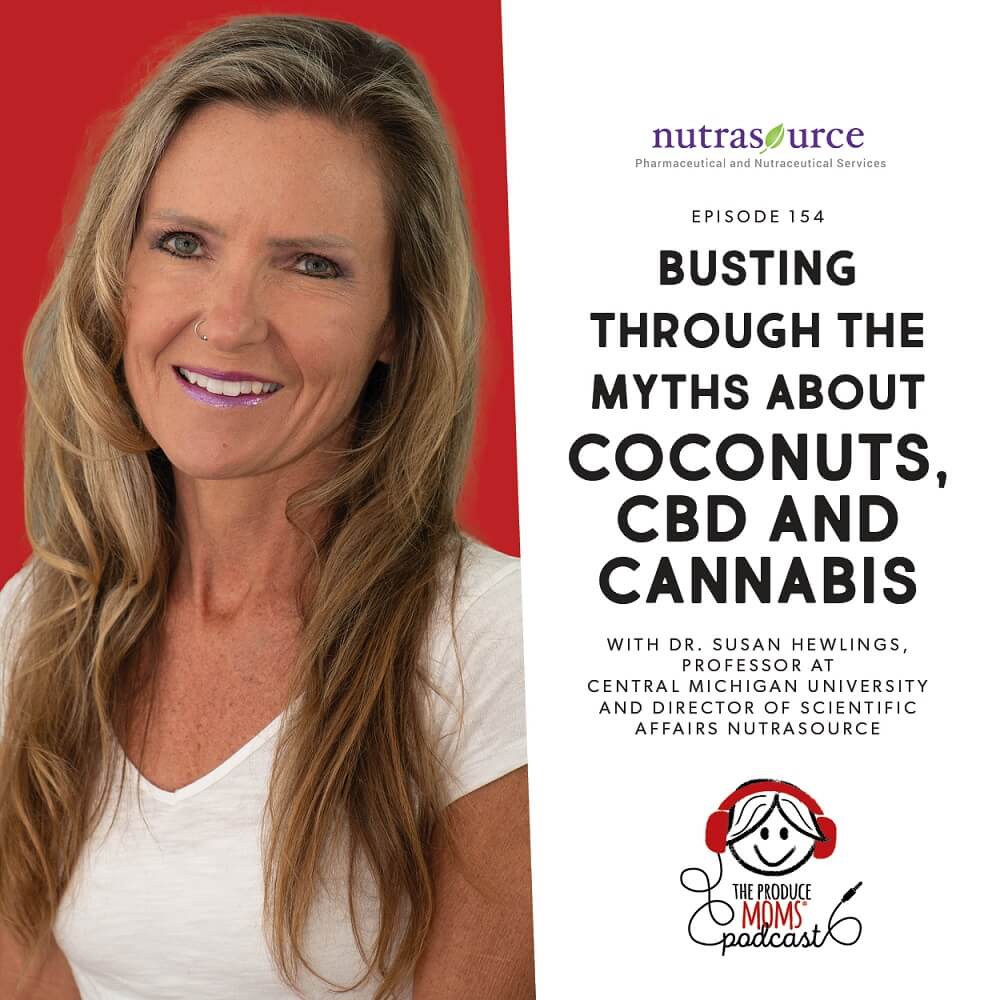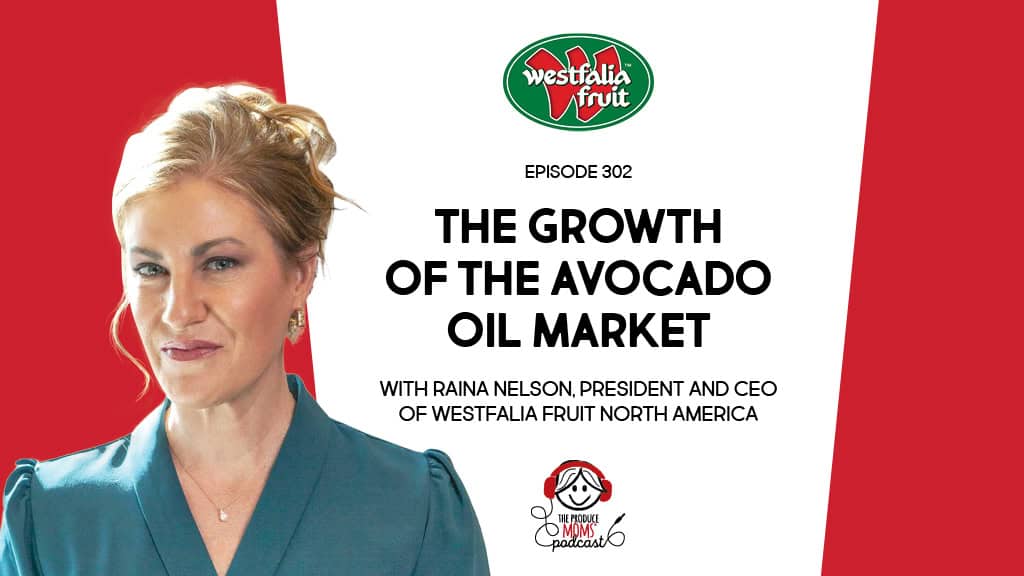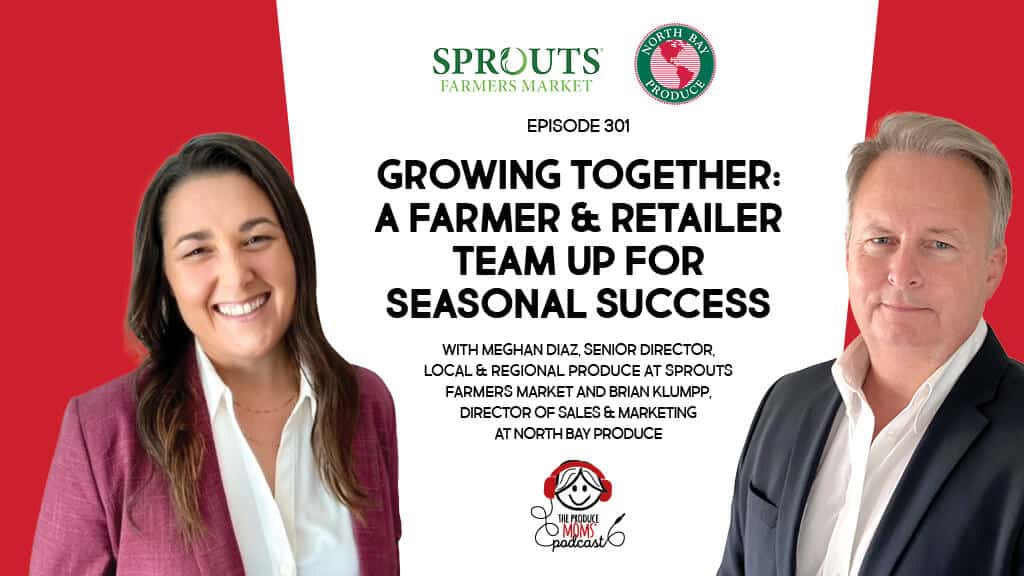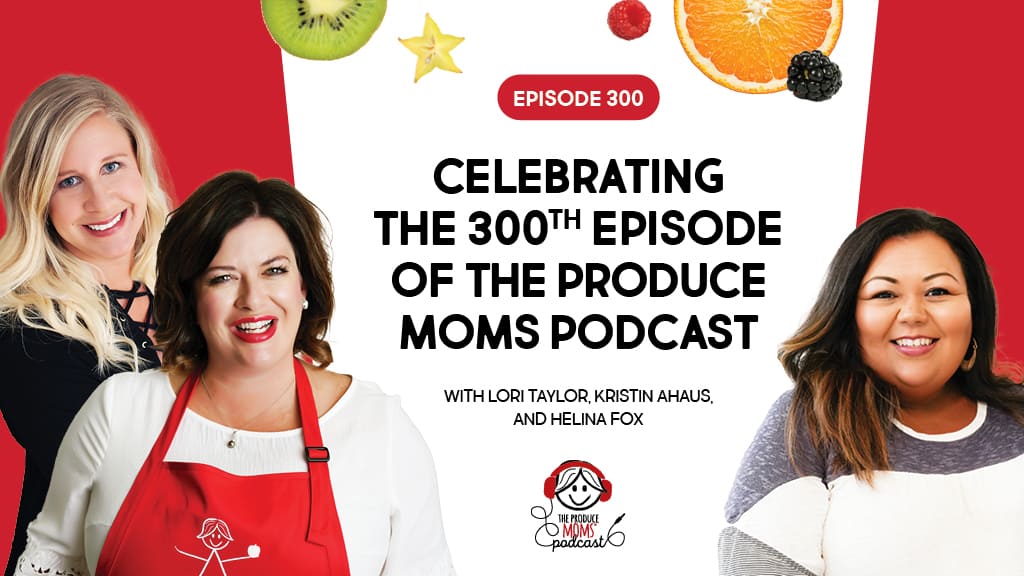Episode 154: Dr. Susan Hewlings
May 05, 2021, Updated Jun 11, 2021
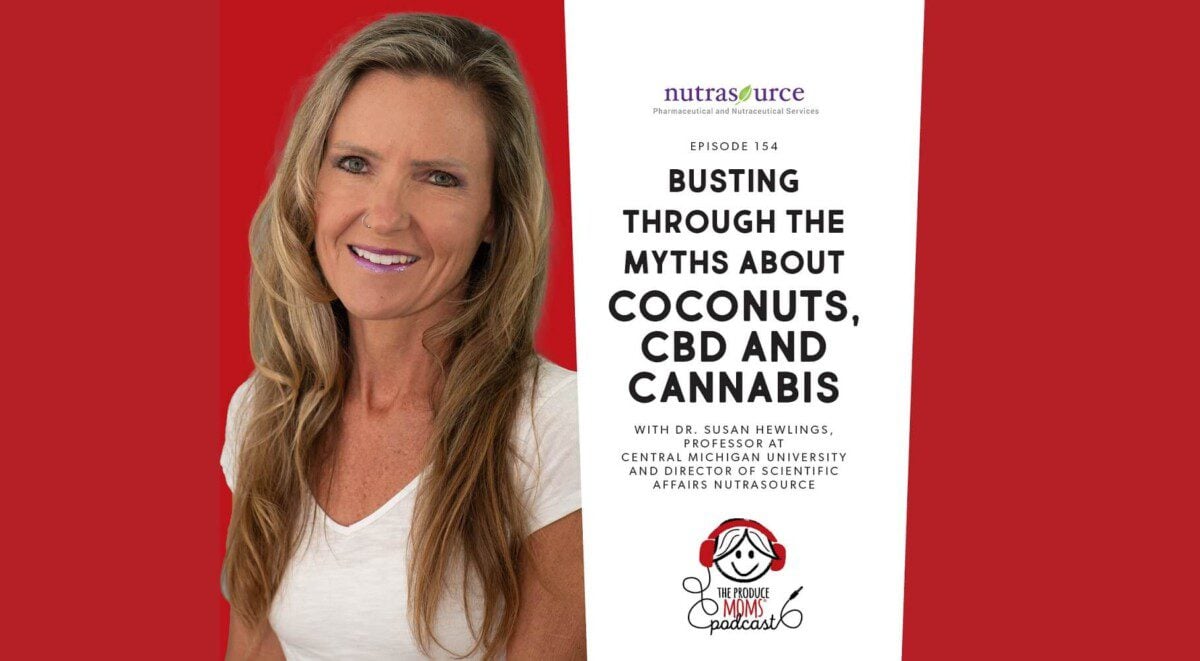
This post may contain affiliate links. Please read our disclosure policy.
Is there anything Dr. Susan Hewlings hasn’t accomplished!? Dr. Hewlings has a PhD in Nutrition, a Masters Degree in Exercise Physiology, is a Registered Dietician, full-time professor at Central Michigan University, has a graduate certificate in cannabis science, and is an author. Most of her work has been bringing research to consumers so they can make the best, educated decisions for their health.
Dr. Susan Hewlings is director of scientific affairs at Nutrasource/GRAS Associates where it is her job to connect science with marketing. Nutrasource is a contract research organization that provides research and regulatory guidance for companies in the dietary supplements, CBD and the cannabis spaces. They help clients design or interpret studies to support their marketing claims to better inform consumers. Dr. Hewlings works with the Coconut Coalition of the Americas who aim to educate consumers and health professionals about the current scientific research related to coconuts and fats.
“You have to remember what’s the definition of the word supplement. It means ‘in addition to’, not ‘instead of’ and I think CBD and cannabis should be looked at the same way.” – Dr. Susan Hewlings (18:57-19:06)
You’ve probably been seeing and hearing more and more products with CBD or CBG as ingredients, but what exactly is it, how does it help, and is it psychoactive? THC, CBD and CBG are cannabinoids, or phytocannabinoids, which are the bioactive compounds in the cannabis plant that have many helpful benefits. Bioactive doesn’t mean psychoactive, and in fact, inside the human body there’s an entire endocannabinoid system. There are cannabinoid receptors throughout our body and endogenous (produce inside the body) cannabinoids are produced that bind to those receptors, just like exogenous cannabinoids (like CBD) do. The binding is what creates the health benefit, and CBD is well known for its help with pain relief, anti-inflammation, sleep, mood and decreasing anxiety because it binds with receptors associated with these responses.
The interesting thing is everyone reacts differently to cannabinoids and the research isn’t all encompassing, which is part of the reason Dr. Hewlings says we’re “at a stalemate” with the FDA on how the use of cannabinoids will be regulated. Questions are being asked like, “will this be a supplement?”, “will this be a part of its own category?”, “are things like drinks and candies allowed under that category?”, and “will it be all encompassing or limited?”.
So how do you know as a consumer whether or not a product that has CBD in it is legitimate? Right now, because it’s unregulated, you don’t, but there are a lot of companies like Nutrasource that are completely transparent with their purity testing and labeling so you can be educated on what exactly is in the product. Many reliable companies are using third party testing such as the testing provided by Nutrasource’s International Cannabinoid Analysis Program (ICAP), making sure testing is on their label, and pushing for testing to become an industry standard.
You can increase your endogenous cannabinoids without consuming exogenous cannabinoids by eating a healthy, balanced diet, filled with fruits and vegetables, and exercising regularly. Ever had a runner’s high? Your body’s cannabinoids surge in number during activities like this, crossing the blood-brain barrier and positively affecting brain chemistry.
Speaking of eating a healthy diet, a large part of Dr. Susan Hewling’s research has been busting the myth that all saturated fats are bad for you. She wrote a research paper on coconuts, which is quite fitting since she lives in the Florida Keys, showing that the types of saturated fatty acids in coconuts are shorter-chain saturated fats, while the saturated fats in beef or butter, for example, are longer chain and therefore have different effects on health. Coconut isn’t metabolized the same way as other foods high in saturated fat we’re supposed to watch out for, which means the argument against saturated fat isn’t so black and white and coconuts can be part of a healthy diet.
Whether it’s the use of cannabinoid supplements, eating coconuts, or following a healthy diet, what’s most important is to stay educated with legitimate research backing claims company’s make about their product’s health benefits. Nutrasource is helping companies provide you, the consumer, with information that supports you in making the best decision for your health.
Remember when trying CBD products on the market, they aren’t psychoactive, but benefits aren’t one-size-fits-all. Everybody’s body reacts differently and the industry is in its infancy stage. See what helps your body the most and with coconuts, they can be part of ahealthy diet and taste delicious!
How to get involved
- Join The Produce Moms Group on Facebook and continue the discussion every week!
- Reach out to us – we’d love to hear more about where you are in life and business! Find out more here.
If you liked this episode, be sure to subscribe and leave a quick review on iTunes. It would mean the world to hear your feedback and we’d love for you to help us spread the word!
Previous episodes you may enjoy
- Episode 153: Colt Reichart, Fourth Generation Owner At Red Gold
- Episode 152: Da Rulk, Founder Of The RFT Method and Kore Nutrition
- Episode 151: John Oakley, Chief Science Director and Tim Busby, Managing Partner At Matter™ Compostables
- Episode 150: Tomo Delaney, Founder And CEO Of Noshi For Kids
- Episode 149: Dr. Drew Ramsey, Author of Eat To Beat Depression And Anxiety
